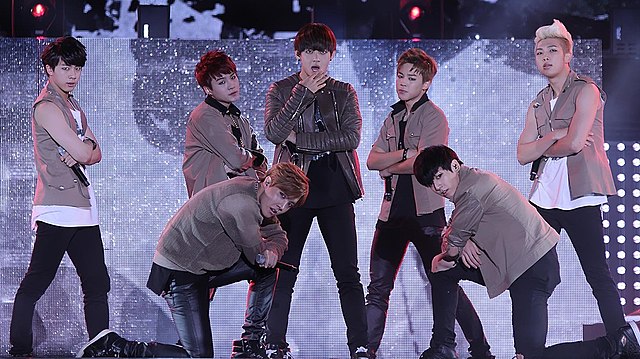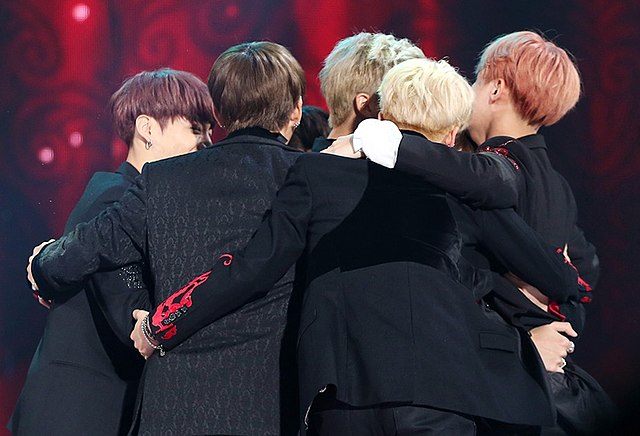For decades, mainstream music has been dominated by Western artists – or more specifically, white people. As society becomes more progressive, we get to discover more talents from minority groups.

Now that BTS is here, the Asian community feels as though that their time of living in the shadows is long gone. These seven guys are leading Asian representation – and they’re doing a very great job at it.
But many are wondering just where in Asia is BTS from? Are they Korean? Let’s find out.
BTS: The International Face of KPOP
BTS, which stands for Bangtan Sonyeondan meaning “bulletproof boy scouts”, belongs to the overarching industry of Korean entertainment and music called KPOP.
It is characterized by its super catchy melodies, aesthetically-driven concepts, high-quality production, slick choreography, and trend-setting elements.
Indeed, BTS isn’t the only KPOP band in the world, but it has done what KPOP has never done before: infiltrate the global scene. For years, KPOP has always failed to attract audiences from Western countries.
Its influence is limited to neighboring countries. But with BTS, things have changed drastically. People from all over the world are now discovering this new industry.

In other words, yes. The Bangtan Boys are from South Korea. They are all natives of the country and are now the biggest Korean artists of all time.
The Hometowns of Each BTS Member
During their trainee days, BTS spent most of their days in Seoul – the capital city of South Korea. However, none of them actually originated in Seoul.
They all came from different hometowns. Check out this list below to see where each BTS member lived before joining the group:
- Jin was born and raised in Gwacheon. The city, located in Gyeonggi Province, is also the home of one of the biggest public libraries in all of the province. Jin is the only member to have lived near Seoul.
- JHope lived in Gwangju, a city with a very rich historical background. It is known for the pro-democracy uprising in 1980, which led to the tragic Gwangju massacre involving 207 students.
- Rap Monster was born and raised in Ilsan. The place is known for having the largest artificial lake in Asia. This may explain the BTS leader’s unwavering love and admiration for nature.
- V and Suga both originated from Daegu Town, which is the fourth largest city in South Korea. Interestingly, Suga’s monicker as a solo artist, Agust D, includes a reference to his hometown. When you read it backwards, it says “DT Suga”, with the first two letters being an acronym of his hometown.
- Jimin and Jungkook, the two lead vocalists of the group, both were born and raised in Busan. The city is the second most populous city in all of South Korea, and some of you may already be familiar of it because of the zombie/action movie Train to Busan.

What are the contributions of BTS to South Korea?
Being one of the country’s most successful musicians, national pride isn’t the only thing that BTS has brought to their beloved country. The cultural and economic impact of BTS is undeniable. Check out these facts below:
- According to SBS News, BTS singlehandedly raised the GDP of the country by 0.3%, which translates to $4.65 billion per year. This is mainly due to their ticket sales.
- In a joint report of the Ministry of Culture, Sports, and Tourism and Korea Culture and Tourism Institute, BTS’ chart-topping song Dynamite had an economic effect of $1.43 billion to South Korea.
- An increase of 7.6% in the number of annual tourists in South Korea is all thanks to BTS.
- BTS contributed to $1.1 billion or 1.7% of the total Korean consumer goods export.
- According to the National Gugak Center, BTS is primarily responsible for the increased interest towards traditional Korean music.
- A civic group called Nation’s People Preserving the Korean Language named BTS as the Top Promoter of the Korean Language in 2018.
What are your thoughts about BTS finally joining the global stage? What would you like to see them do next for South Korea? Let us now in the comment section below!
